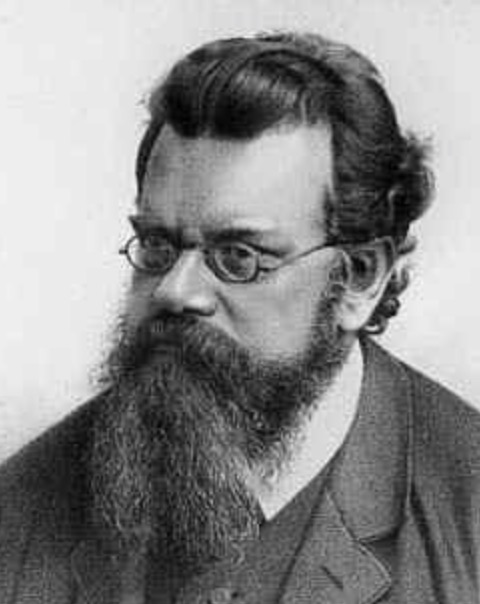
Ludwig Boltzmann was born on February 20, 1844 in Vienna, Austria. He earned his Ph.D. from the University of Vienna in 1866 for his thesis on the kinetic theory of gases and within three years had become the chair of theoretical physics at Graz in Austria. Attempting to model the properties of substances on probabilities associated with atoms and molecules led him to the discovery of statistical mechanics. Hypothesizing that the average energy of a molecule is the same in all directions led him to discover what is now called the Maxwell-Boltzmann distribution–an important contribution to thermodynamics.
Though Boltzmann’s lectures were widely attended, his theories were revolutionary and drew strong opposition from powerful colleagues such as, Ernst Mach and Wilhelm Ostwald. The debates were often vitriolic and mean-spirited, exacting a toll on Boltzmann’s bipolar personality that fluctuated between moods of severe depression and manic elation. As criticism of his theories increased, Boltzmann became increasingly depressed, wondering whether his life’s work was fundamentally flawed. On October 5, 1906, while vacationing with his wife and daughter, he hanged himself while they were away swimming. Ironically, when he died, Boltzmann was unaware that new discoveries on radiation were about to prove his ideas correct, validating his work and discrediting his critics.
Describing the highest quality of exposition shared by the giants in mathematics and music, Boltzmann stated, “A mathematician will recognize Cauchy, Gauss, Jacobi or Helmholtz after reading a few pages, just as musicians recognize, from the first few bars, Mozart, Beethoven or Schubert.”
